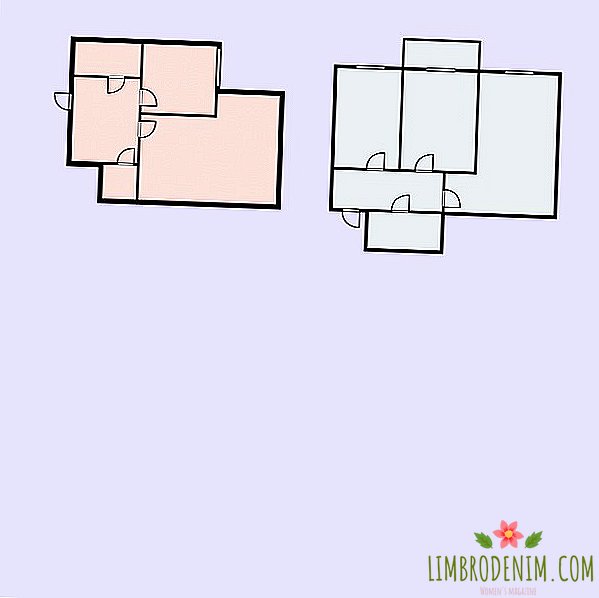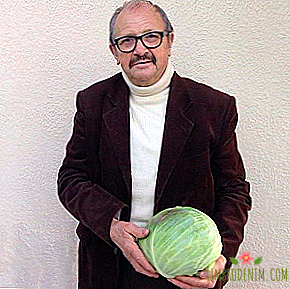“These are not people, these are the accused”: How I visited Lefortovo
I'm a journalist for the TV channel "Rain" but last fall I became a member of the PMC in the city of Moscow. The POC, or the Public Observation Commission, is an organization that checks whether human rights are respected in Russian prisons. It is surprising that the PMC has existed in our country only since 2008 - until then the FSIN (Federal Penitentiary Service) system was completely closed. Almost any person over 25 years old can get into the PMU, the main thing is that he should not be tried, a member of the prosecutor's office, a state employee or a lawyer with human rights experience. Candidates are elected every three years by the Council of the Public Chamber.
This is free, in fact, volunteer work, but important because the Russian prisons are not similar to the conditions of detention of Breivik. In the SIZO - temporary isolators - the suspects are still sitting for years. Among them are not only thieves and murderers, as is commonly believed, but also well-known businessmen and officials, as well as persons involved in absurd cases, such as the theft of baby carriages and bicycles. So far my biggest impression is Lefortovo. The most closed and severe of prisons, subordinated to the FSB. For some reason, it is here that the accused are placed in the most resonant political affairs of recent years.

Human rights activists go for two. To the head of the detention center we are led along a light corridor, parquet floor squeaks under our feet, there are pots with aloe on the windowsills, it seems that it even smells clean in the air. Strange, but in a building whose history was made up of so many torments without guilt, there is no mold or stench - everyday life is around. The interim head of the facility, Viktor Shkarin, a man with a sly look from a former KGB officer, demonstrates that he is incredibly pleased with our visit: "Kogershyn Yerbolatov, will you be roasted sweets?" - "Victor Antonovich, I will," I reply. "And tea with milk." Shkarin even asks him how to subscribe to "Rain", and I promise to write instructions on a piece of paper.
As soon as we get to the cameras, everything will fall into place: Lefortovo will intelligibly explain what “mode” means. We silently move under a convoy of three people, closing one lattice after another, and find ourselves in the center of the isolator. From here, the same iron doors fan up in four directions inwards and upwards. Behind them are generals, oligarchs, politicians, terrorists — all those you read about in the news. There is a metal grid between the floors, so all the cells are not visible at once.
We open the first one, and I shudder with surprise and a deafening cry: “Kogershyn Yerbolatovna, get away from the camera, away!”, “Prisoners, leave the camera, ONK wants to check the conditions of detention!”, “Face the wall, hands behind your back. Does anyone talk to the members of the PMC? " At this moment, the roasted sweets stand in the throat: in no other prison, the visit of human rights activists does not look so intimidating. But Lefortovo has its own charter and its signals to the accused: do not communicate with them, you never know. However, not everyone gets scared.
In one of the first visits of about forty minutes we talk with the former Kirov governor Nikita Belykh, he looks cheerful and strong in spirit. Nonstop writing complaints. It requires the delivery of letters on time, required by law, phone calls, wedding. But the letters "disappear" on the way, and the investigator does not issue permits to meet with relatives and the bride. In two months, Belykh’s diabetes will worsen and his leg will start to be taken away - I will see the former governor as a completely different person, who has become very tired and exhausted, literally tortured, on the verge of a nervous breakdown. The investigator, who seemed to be Belykh as a hostage, not only did not sign the permits, but had never appeared personally during that time - from mid-October until the end of January, the former governor was simply meaninglessly locked.
No interrogations lead, I'm just sitting here and that's it. State of psychological breakdown. Waves rolls despair. And these voices: "Admit it, take the blame on yourself"
“I will stay here without a leg,” Nikita Belykh draws perspective. “Even getting up and coming to the window is a problem, I eat nothing for five days, I have no appetite, but from painkillers, which are given to me, I sleep all day. I’m not even talking about the attitude to the prisoners here, as to animals ñ people cannot change. Nobody heard about the presumption of innocence in this prison. "
The officers of the prison among themselves call Varvara Karaulov the “most malicious terrorist”. Her camera resembles a student hostel, a girl with childlike eyes, has been sitting in Lefortovo for more than a year, quarreling with escorts, is not afraid of anyone, but in the evenings she drinks soothing. Next time I will meet Vary, when it becomes known that the court sentenced her to 4.5 years in prison. She will be upset, but still the same brisk.
“The mood is depressed, uncertain,” says Karaulova. “The NTV plots are especially oppressive about me, I try not to look at them. I read books: Orwell, Animal Farm, and Shakespeare, Hamlet, in the original, not just that. Now filed an appeal, the procedure would take about six months, and in the colony I want to get a law degree remotely. You know, letters of support really help, I am grateful to everyone who sends them. "
We talk for a long time with Andrei Kochuykov (criminal authority nicknamed Italian, associate of kingpin Shakro Young): his camera cannot be ignored, the smell of expensive shaving cream invariably fills the corridor of the first floor of Lefortovo. Kochuykov always holds on proudly, speaks very openly about life in the SIZO, even managed through lawyers to tell us how he was taken to the next building of the FSB and threatened with a 25-year term if he did not testify to employees of the IC and Shakro Young.
Here, a person is not beaten - they just offer a deal first, and then they leave it for ages in a cell that generates claustrophobia, without the slightest contact with the outside world.
Kochuykov says: “Four people attacked me and started pressing. They said that there would be investigative actions in the presence of lawyers. But they simply deceived me, the lawyers only learned from me about what happened the next day. And from such things tough to the smallest ones that undermine my psyche For example, they didn’t give away a New Year card from my parents and godfather, showed and took it away. Why can't I leave it. After all, from home - isn't it mental stress? And most importantly - for what? Hold me here for what, within four walls without hot ode to the toilet, which is not allowed even a curtain to cover up? Why should I put up with it? Not yet proved my fault! "
We meet with Mikhail Maksimenko, the former head of the Investigative Committee’s own security department, he tells how, during the same campaign as Kochuykov’s campaign in the FSB, he was drunk with psychotropics and now he has heard voices for more than six months. “I eat only my food,” explains Maksimenko, “I cook from the food I have been given. I drink water from the tap because I cannot mix anything in there. I do not send letters, I do not believe that they will not be rewritten. No interrogations are conducted, I'm just sitting here and that's it. A state of psychological breakdown. Waves of despair come in waves. And these voices: “Admit it, take the blame on yourself."
We meet with Alexander Reimer, the ex-director of the FPS, but he refuses to communicate. Ruslan Stoyanov, head of the computer incident investigation department at Kaspersky Lab, does not ask for anything, says that he began to study psychology. General FSO Gennady Lopyrev says, if they took it, it means that someone is needed, it’s pointless to twitch, let their relatives hand over the book “Escape from Shoushenk”.
FSB Lefortovo prison differs from other insulators in its external well-being. Here is not the case when the dirt and the mess, and twenty instead of fourteen people are placed in the cells, the doctor does not come in months, not the food, but the spoil. In this sense, everything is in order here.
But it seems that the local, somewhat manic order is hysterical. In Lefortovo, you cannot buy a cell phone, a hand cream, or even a pinch of salt for any money. When laws do not work, humanism in Russian prisons comes through corruption - but not in Lefortovo. Here, a person is not beaten - they just offer a deal first, and then they leave it for ages in the chamber generating claustrophobia, without the slightest contact with the outside world. In Lefortovo prisoners are affected by silence, crampedness and stopping time. "Good-bye, Victor Antonovich, we will come again to check whether human rights are respected." “These are not people, Kogershyn Yerbolatovna. These are the accused,” explains Shkarin.
Photo: Gudellaphoto - stock.adobe.com, Wikipedia





